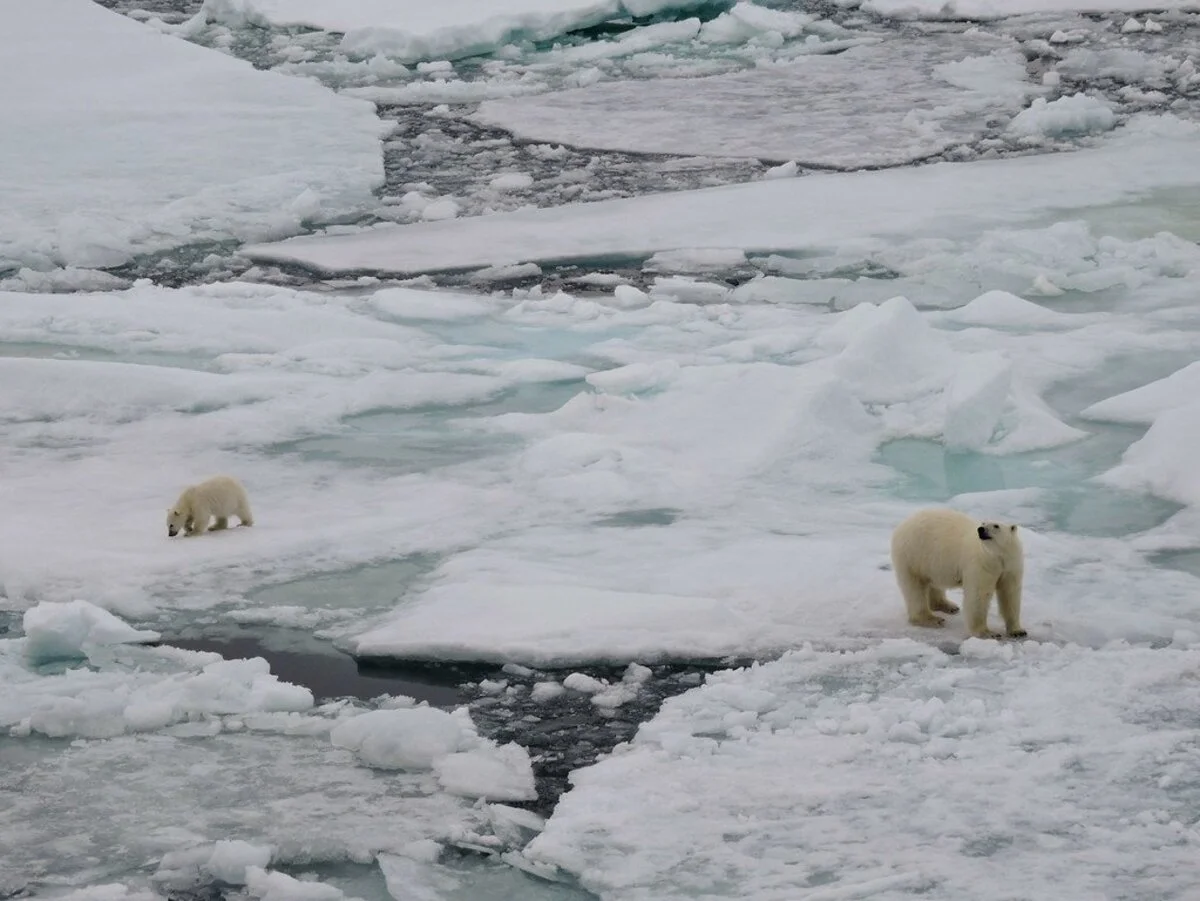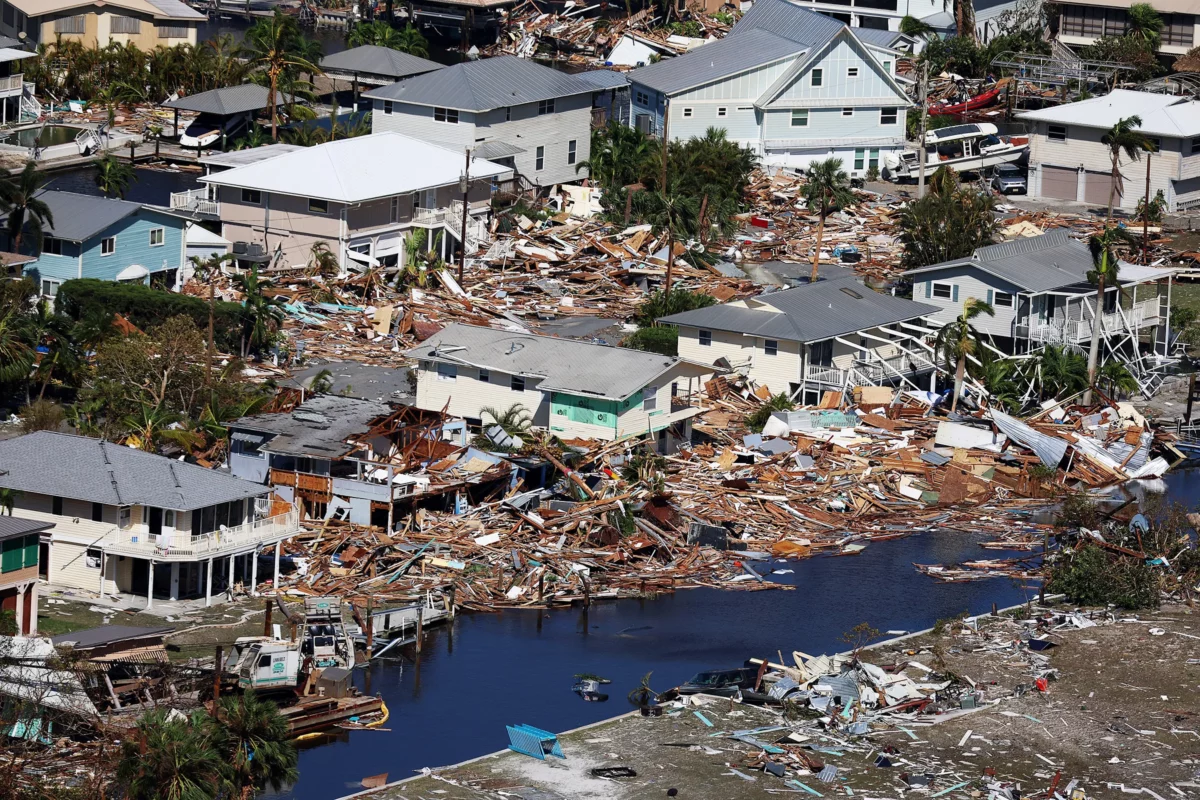The world is heating up at an unprecedented rate, with April marking the 11th consecutive month of record-breaking global temperatures. This alarming trend, coupled with rising ocean temperatures, sea levels, and greenhouse gas concentrations, underscores the rapid changes in Earth’s climate.
Despite these clear indicators, climate change denial persists, often fuelled by a series of well-worn myths. It’s therefore imperative to address and debunk these misconceptions. Here’s a closer look at eight common climate-related myths and why they are simply not true.
Myth #1: Climate Change Has Always Happened, So We Should Not Worry About It
While the Earth’s temperature has indeed fluctuated over millennia, the stability experienced since the last ice age 10,000 years ago has been crucial for the development of human civilization. This stability is now under threat. The Earth is warming at its fastest rate in at least 2,000 years and is currently about 1.2°C warmer than in pre-industrial times. The last decade has been the hottest on record, with 2023 shattering global temperature records. Rising ocean temperatures, sea levels, and greenhouse gas concentrations, along with retreating sea ice and glaciers, all signal a dramatic shift that demands immediate attention.
Myth #2: Climate Change Is a Natural Process and Has Nothing to Do with People
Although climate change can occur naturally, human activity has significantly accelerated the process. The Intergovernmental Panel on Climate Change (IPCC) reports that nearly all the global warming observed in the past 200 years is attributable to human activities, primarily the burning of fossil fuels such as coal, oil, and gas.
These activities release greenhouse gases like carbon dioxide, methane, and nitrous oxide into the atmosphere, creating a heat-trapping blanket around the Earth. Scientists have tracked these gases through various methods, such as ice cores and tree rings, revealing that current levels are the highest in millions of years.
Myth #3: A Couple of Degrees of Warming Is Not That Big of a Deal
Even small temperature increases can have catastrophic effects on the world’s ecosystems and human societies. The Paris Agreement aims to limit global temperature rise to well below 2°C, preferably 1.5°C, above pre-industrial levels. The difference between 1.5°C and 2°C is stark: at 2°C, over 2 billion more people would be regularly exposed to extreme heat, crop yields would plummet, and 99% of coral reefs would likely die, decimating marine biodiversity and food sources for coastal communities. Every fraction of a degree matters, as it can mean the difference between manageable and catastrophic impacts.

Myth #4: An Increase in Cold Snaps Shows Climate Change Is Not Real
This myth confuses weather with climate. Weather refers to short-term atmospheric conditions, while climate is the long-term pattern of weather in a region. Therefore, occasional cold snaps do not negate the overall trend of global warming. In fact, some studies suggest that climate change could lead to more intense and prolonged cold spells in certain areas due to alterations in atmospheric patterns, such as the disruption of the polar vortex.
Myth #5: Scientists Disagree on the Cause of Climate Change
There is overwhelming consensus among scientists that climate change is primarily driven by human activities. A 2021 study found that 99% of peer-reviewed scientific literature agrees on human-induced climate change, consistent with earlier findings of a 97% consensus. The notion of disagreement is largely propagated by climate deniers to create doubt and hinder action.
Myth #6: It Is Too Late to Avert a Climate Catastrophe, So We Might as Well Keep Burning Fossil Fuels
While the situation is indeed dire, it is not too late to mitigate the worst effects of climate change. According to UNEP’s Emissions Gap Report, reducing greenhouse gas emissions by 42% by 2030 could limit global temperature rise to 1.5°C. Achieving this goal requires immediate and substantial efforts in low-carbon development across key sectors like transportation, agriculture, and forestry.
Myth #7: Climate Models Are Unreliable
Climate models, developed and refined over decades, have consistently provided accurate projections of global warming. A 2020 study from the University of California examined 17 climate models from 1970 to 2007 and found that 14 closely matched observed temperatures. These models, endorsed by the IPCC, offer a robust and clear picture of ongoing and future planetary warming.
Myth #8: We Do Not Need to Lower Greenhouse Gas Emissions Because We Can Adapt

While some adaptation is possible, it is not a panacea. Many developing countries, and even some wealthy nations, lack the resources to fully adapt to the impacts of climate change. UNEP’s Adaptation Gap Report highlights that the world’s developing countries need between $215 billion and $387 billion annually for adaptation, far more than they currently have access to. Without significant emissions reductions, many communities will face insurmountable challenges, leading to widespread displacement, loss of infrastructure, and threats to food security.
The myths surrounding climate change delay the urgent action needed to address one of the greatest challenges facing humanity. The upcoming conference in Bonn presents an opportunity for global leaders to reaffirm their commitments to combating climate change and to take decisive steps toward a sustainable future. As Dechen Tsering of UNEP aptly puts it, “We have the solutions we need to reduce emissions today, and there is an opportunity to raise ambition in the new round of national climate action plans.” It is crucial that we dispel misinformation, embrace scientific consensus, and act swiftly to protect our planet for future generations.
















